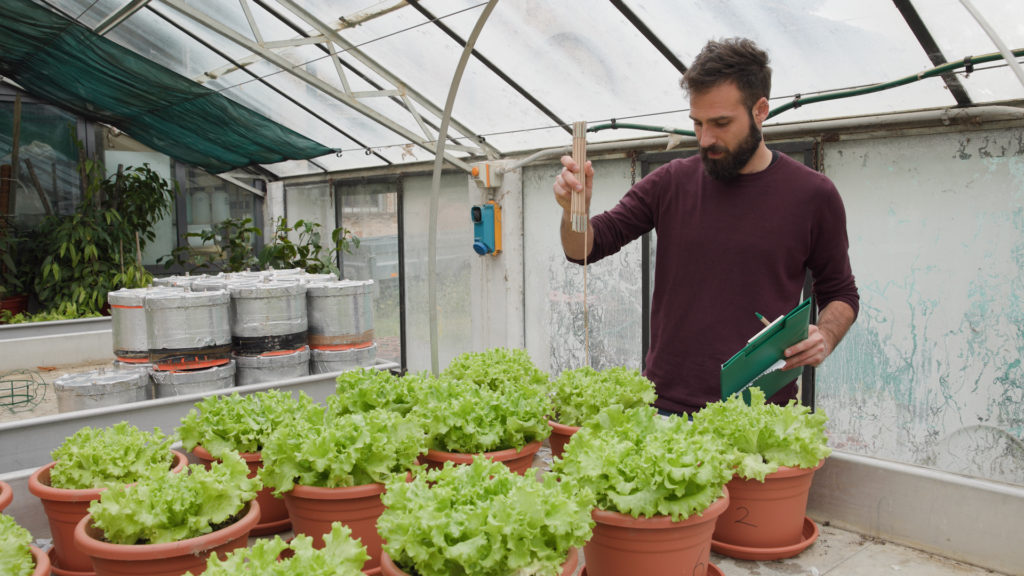Interview Series #2
From Soil Degradation to Soil Regeneration: Enhancing European Agriculture
Leonardo Verdi is a distinguished researcher in the field of agronomy, affiliated with the Department of Agriculture, Food, Environment and Forestry (DAGRI) at the prestigious University of Florence. With a passion for sustainable agriculture and environmental conservation, Leonardo has dedicated his career to exploring innovative approaches and solutions to enhance agricultural practices and ensure food security in a rapidly changing world.

Q: How badly is Europe's soil being degraded?
The average organic matter in soil content is around one percent with lower values in the South of Europe. In the 1950s it was about three times more, even reaching 10% in some areas. Nowadays in a typical agricultural system, there are large periods without any kind of soil protection. This leads to huge losses of the organic matter with negative fallouts on soil fertility, nutrient exchanges, water holding capacity, and managing the pH in the soil.
There are different ways to solve this. The first is precision farming and precision fertilization – reducing its use to precisely where it’s is needed, when is needed, and how it’s needed. The second is ‘controlled release’ fertilizers that are covered by protection coating that allows the fertilizer nutrients will be slowly but constantly released through time. Similarly to these, nitrification inhibitors reduce nitrogen losses from fertilizers, hampering the activity of Nitrosomonas bacteria. Using organic fertilizers is an effective strategy ensuring soil organic matter accumulation since they take time to be degraded and to became available for the soil. One example is digestate that represents the main by-product of biogas production process.
Q: The NOMAD project is finding new ways to make digestate more available to farmers. What is digestate and how is it used?
You can call digestate the by-product of the anaerobic fermentation used to produce biogas. You can use biomass, slurries, sludge, more or less everything that has an organic base. The liquid part can be used as fertilizer, while the solid part can be used as a soil amender.
Digestate itself already has a very high amount of carbon which is already able to be degraded into the soil and can very efficiently contribute to the soil’s carbon storage.
There can be problem of biogas and digestate production if it is not done correctly. If the post-fermentation digestate is left in the open air, you can have huge losses of methane, nitrous oxide, ammonia and so on. But if everything is well managed, at the end you have a stable digestate that can be spread in the field. It’s very important to spread the liquid digestate not on the soil surface, but instead some centimetres into the soil.
Q: What do you see as the next steps of the project or the field trials themselves?
I believe a lot in these project’s technologies. I believe in renewable energies, but at small sites. A small farmer may need a small biogas plant to make the farm autonomous from an energetic point of view, and provide some digestate to reduce the amount of synthetic fertilizers.
The NOMAD project can go to these small farmers to support the production process. This can valorise the digestate and represent an additional commercial sector for the farmer if they want to sell the fertilizer (if they have enough) or to improve the sustainability of the farm using a self-produced renewable and organic fertilizers.
Of course, a small farmer will not be able to buy a NOMAD-style digestate truck, but what is working very well in some areas of Italy is the organization of farmers into consortium. So buying one truck per consortium in a specific area could be a good strategy. In the end farmers are not interested in the truck per se, but they are interested in the technology that improve the quality of their digestate.
The European agriculture sector, as it is organised right now, consists of many small farms, so the opportunities of these farms are very low. They are strongly connected to European economic supports. So this is why I got involved in NOMAD; to help create a new strategy that can be adopted by a lot of farmers.